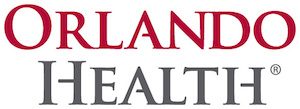(ORLANDO, Florida) – About 42,000 women die of breast cancer each year, and while strides are being made in medical treatments, the best tool for preventing cancer deaths continues to be screening and early detection. But a new national survey by Orlando Health finds far too many women are skipping lifesaving mammograms. Knowing your risks and when to begin screenings is critical to early detection, something that is especially important for those who are disproportionately affected by the disease such as Black women, who are more likely to be diagnosed at a younger age and are 40 percent more likely to die of breast cancer than white women.
“African American women tend to have a more aggressive disease course, and we want everybody, regardless of their race, to be aware and get their recommended mammograms,” said Nikita Shah, MD, medical oncology team leader for the Breast Care Center at the Orlando Health Cancer Institute. “Breast cancer is one of the few cancers where the survival rate is over 90 percent when caught early, and we know that early detection is where we can really make a difference.”
Recently updated guidelines state that women of average risk should begin annual mammograms at age 40, and earlier for those with risk factors like a family history, prior biopsies, atypical cells and dense breast tissue. Yet the survey found 22 percent of women ages 35 to 44 have never gotten a mammogram and have no plans of getting one.
“Mammograms can pick up tumors that are extremely small and result in a diagnosis at a stage zero or one, versus waiting for a patient to feel a lump and then by then it’s probably a stage two or three,” Shah said.
Women should begin talking to their primary care physician or gynecologist in their twenties to assess their risks and determine when mammograms should start. However, the survey also found that only about a quarter of women have had a conversation with their doctor about their breast cancer risks. Monthly self breast exams are also important to help women understand what is normal for them, so they can recognize any changes and bring them to their doctor’s attention.







